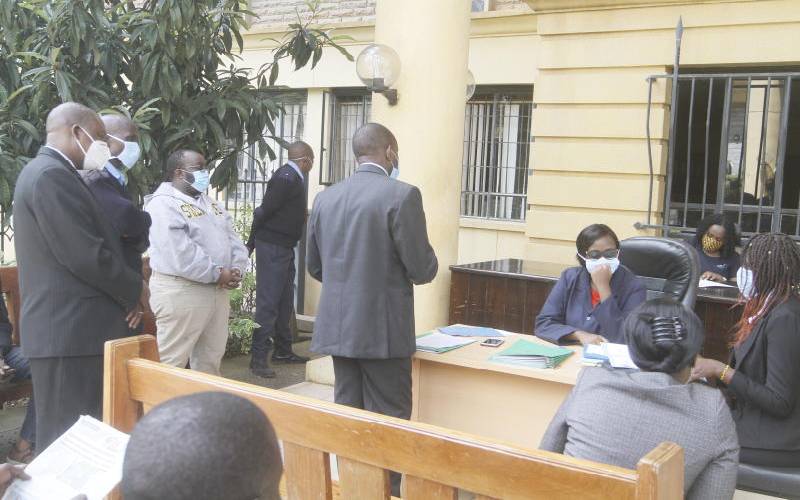×
The Standard e-Paper
Fearless, Trusted News

Judicial officers and other court users are at a major risk of contracting coronavirus if they continue holding open sessions, the Ministry of Health has warned.
A series of reports prepared after an evaluation of all courts in the country by the ministry warn that open court sessions expose more people to Covid-19.